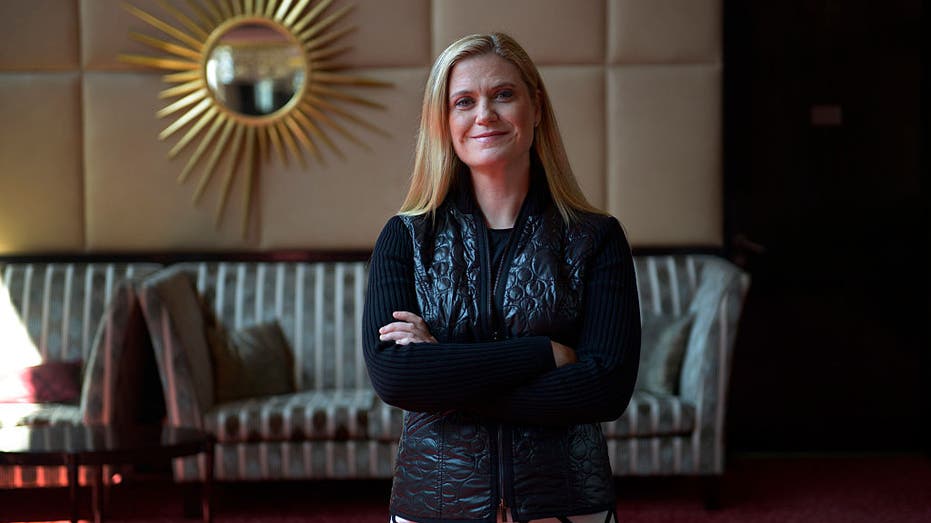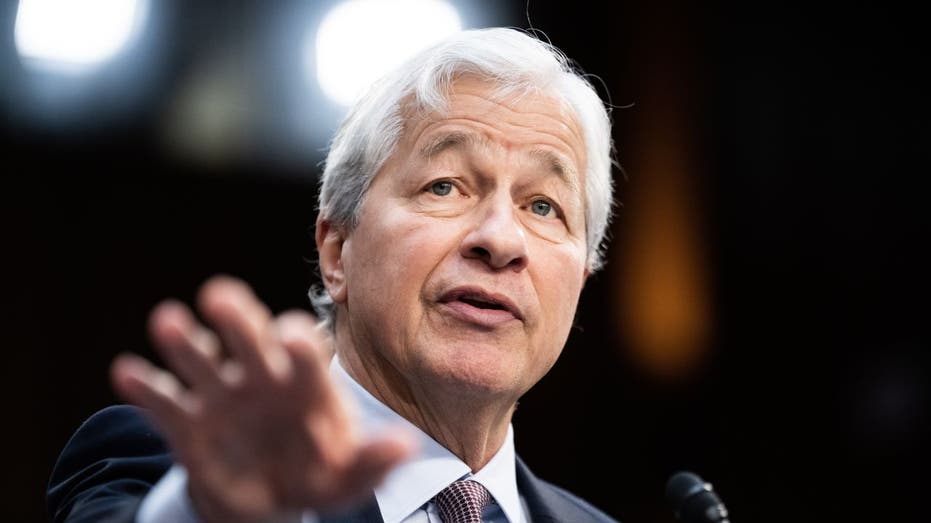JPMorgan Warns Customers: Prepare to Pay for Checking Accounts
Checking accounts and wealth-management tools, now free, could see new charges
JPMorgan Chase CEO Jamie Dimon slams crypto, bitcoin at Senate hearing
JPMorgan Chase CEO Jamie Dimon told U.S. lawmakers at a Senate Banking Committee hearing the only true use case for cryptocurrency is for criminals and said that were he in control of the government, he would "close it down."
The head of America’s biggest retail bank has a warning for its 86 million customers: Prepare to pay for your bank accounts.
Marianne Lake runs Chase Bank, the sprawling franchise inside JPMorgan Chase that is the country’s biggest bank for consumers and one of its biggest credit-card issuers. Lake is warning that new rules that would cap overdraft and late fees will make everyday banking significantly more expensive for all Americans.
| Ticker | Security | Last | Change | Change % |
|---|---|---|---|---|
| JPM | JPMORGAN CHASE & CO. | 322.35 | +12.34 | +3.98% |
Lake said Chase is planning to pass on the costs of higher regulation and charge customers for a number of now-free services, including checking accounts and wealth-management tools, if the rules become law in their current form. She expects her peers in the industry will follow suit.
U.S. ECONOMY ADDS 206,000 JOBS: APRIL, MAY REVISED DOWN

MUMBAI, INDIA - MARCH 10: Marianne Lake, Global Chief Financial Officer of JP Morgan, photographed on March 10, 2014 in Mumbai, India. ((Photo by Abhijit Bhatlekar/Mint via Getty Images))
"The changes will be broad, sweeping and significant," Lake said. "The people who will be most impacted are the ones who can least afford to be, and access to credit will be harder to get."
This isn’t the first time banks have said they would pass on higher costs to consumers when regulators have attempted to cap their fees. In 2010, after the post-financial crisis overhaul of bank regulations, lenders warned that they would levy fees on debit cards because of a cap on some card charges—but few ended up doing so because consumers threatened to move their business. Some consumer advocates say this time is no different.
"The banks say that their only option is to pass on their costs to customers, but that’s not true," said Dennis Kelleher, president of Better Markets, an economics think tank that is in favor of the proposed bank regulations. "Yet again, banks are dressing up their attempts to maximize their own profit under the guise of what’s good or bad for customers."
TWO-THIRDS OF AMERICANS ARE FALLING BEHIND, CAN'T MAKE ENDS MEET
| Ticker | Security | Last | Change | Change % |
|---|---|---|---|---|
| PYPL | PAYPAL HOLDINGS INC. | 40.42 | +0.52 | +1.30% |
Banks are saying this time could be different because of the scale of new financial regulations coming out of Washington. Agencies such as the Consumer Financial Protection Bureau are proposing an $8 cap on credit-card late payment fees and a $3 cap for overdrafting bank accounts. They are also planning to further limit debit-card fees and how much they can charge to software companies like Venmo and CashApp for accessing and using their customers’ data. On top of that, new bank capital rules would make it harder for banks to lend by requiring them to hold more reserves against mortgages and credit-card loans.

U.S. President Joe Biden (R) and Republican presidential candidate, former U.S. President Donald Trump participate in the CNN Presidential Debate at the CNN Studios on June 27, 2024 in Atlanta, Georgia. President Biden and former President Trump are (Photo by Justin Sullivan/Getty Images / Getty Images)
It is possible some of the rules could be watered down, or not become law at all, if Donald Trump takes the White House in November. But as the landscape looks right now, Lake said many of the types of basic services that Chase customers have become accustomed to—including free checking accounts, credit score trackers, and financial planning tools—won’t likely be free anymore.

Jamie Dimon, CEO of JPMorgan Chase, testifies during the Senate Banking, Housing, and Urban Affairs Committee hearing titled "Annual Oversight of Wall Street Firms," in Hart Building on Wednesday, December 6, 2023. (Tom Williams/CQ-Roll Call, Inc via Getty Images / Getty Images)
Long considered one of two front-runners to succeed Jamie Dimon as chief executive when he retires, Lake has worked in many parts of JPMorgan Chase. She served as chief financial officer between 2013 and 2019, and controller for its investment bank between 2007 and 2009.
She said she has seen how regulation of debit card swipe fees has made some banking services more expensive for customers, and she expects that to happen again.
"It is not practical for many of the services to be free if we won’t be able to draw from those profit pools," Lake said.
JPMorgan
Banks across the board have launched a number of appeals and taken the government to court to stop the raft of forthcoming rules. Most of the lawsuits have been filed in the Northern District of Texas, a favorite jurisdiction of institutions trying to stop rules and regulations promulgated by the Biden administration.
The rule capping credit card late fees was passed by the CFPB in March, but then a coalition of bank industry groups sued to stop it before it could become law. The law is pending appeal before a judge. Trade organizations representing large banks also sued to prevent changes to the Community Reinvestment Act, which requires banks to offer their services to low-income and historically disadvantaged communities.
Even though the credit card late fee cap hasn’t become law yet, some credit-card companies are ready to pass on costs to customers. Chase has sketched out plans to ratchet up interest rates and take a more conservative approach to underwriting credit-card loans, according to an investor presentation.
In the long run, big banks such as Chase might actually stand to be the winners if the rules out of Washington are passed.
| Ticker | Security | Last | Change | Change % |
|---|---|---|---|---|
| BAC | BANK OF AMERICA CORP. | 56.55 | +1.64 | +2.99% |
| WFC | WELLS FARGO & CO. | 93.93 | +2.37 | +2.59% |
| C | CITIGROUP INC. | 122.66 | +6.98 | +6.03% |
"Any change in regulations that would cap fees will create opportunities for institutions that are highly efficient," said Dan Goerlich, a consulting partner at PricewaterhouseCoopers who advises bank clients. "Big banks can make up for a dent in consumer banking revenues with profit from their wealth management and investment banking arms. Smaller and regional banks will struggle to make up for that."
CLICK HERE TO READ MORE ON FOX BUSINESS
But he warned that it might not be so easy for banks to pass on costs, either.
The highly competitive environment for retail deposits means that banks might wind up needing to keep services free, no matter what the final rules end up looking like.
"Most customers can access retail banking easily and seamlessly today," Goerlich said. "It might be disadvantageous to keep services at zero cost, but banks’ hands could be forced by other competitors who will offer customers low-cost services."
Write to Alexander Saeedy at alexander.saeedy@wsj.com




















